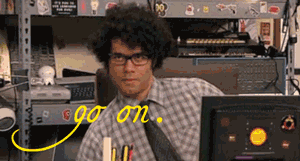Guidance For Poster Presentations
The Talking about Teaching conference (TAT) is coming up in June and with some of you contributing a poster presentation to present, we thought it may be useful to provide some guidance on how to make a research poster.

Back to Basics:
Essentially your poster should be structured like an essay, but in a visual form. So you’ll need to include:
- Introduction
- Literature
- Method
- Results
- Discussion
- Conclusion (if your project is complete).
It’s a matter of dressing it up to attract the audience, summarise the key points, and laying it out in a way that is easy for your audience to digest.
ILS have a PDF about making a poster through PowerPoint, which I used when making an academic poster as an undergraduate, and it helped me set up the document and get the dimensions right instead of guessing. It offers advice on layouts, having the images fit nicely, and sending it to the printers with plenty of time.
However, when it comes to printing the poster off, Academic Development will pay for the posters to be printed. All you’ll have to do is send it to us in advance, for us to send to the printers, so it won’t cost you a thing.
Details:
They orientation of the document is not strict when it comes to the TAT conference, although for other conferences, such as Posters in Parliament, there may be criteria to follow. It is worth keeping in mind what the conference requires when presenting a poster. Some will cover the printing cost for you, have a specific size, or will want certain margins around the poster in order to fit in the stands they have at the institution the conference is at. If you are ever unsure, drop them an e-mail to ask.
There are many ways you can display your research that doesn’t have to be only text, you could create diagrams, tables, infographics or images. Each project is different and allows for different visual aids. For example, If your project offers statistical information, a graph or table may offer a break among the text. If ever you are unsure with your poster or not sure where to start, you can ask ILS for a one-to-one and they will offer help specific to your poster and needs. I know this sounds like a lot of information, and there is lots more but don’t worry.
But wait, there’s more:
If you’re worried about presenting a poster at a conference, or apprehensive at all, Sara and I will be running a session on presenting an academic poster later in April before the conference to help answer any questions you have. A lunch will be provided, and we will go through what needs to be included in a research poster, examples from staff and students, and general questions you may have. Plus, it’s a good reason to meet everyone on the scheme again and see where everyone is at in their projects.
Don’t forget the call for proposals for the conference of still open until the 20th April. Don’t forget to book on and submit your project before the deadline, attending the conference and working on the posters can count towards your hours as a student researcher, and It will look great on your CV.
